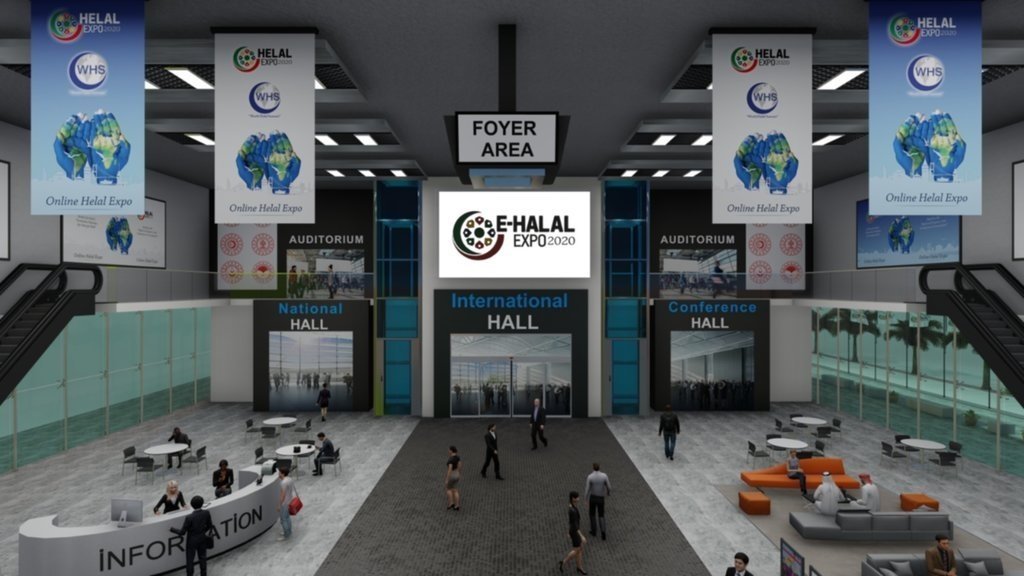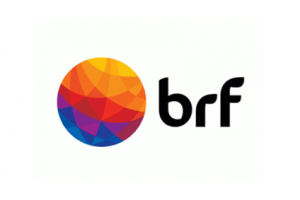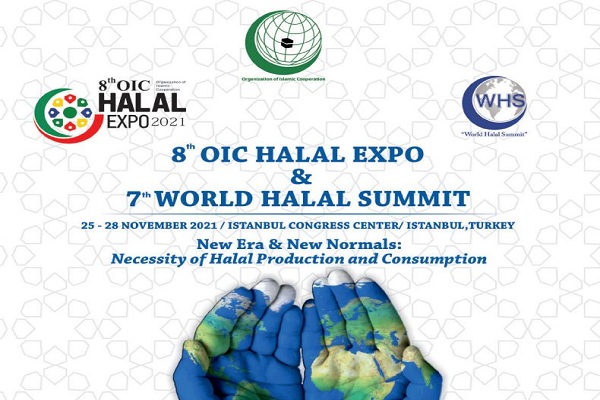|
Having gained importance in global markets in recent years, the concept
of halal products is being adopted by many countries. South Africa, New
Zealand, Malaysia, Indonesia, China, Singapore and Thailand have
already adopted halal standards, and they have quickly discovered the
potential in the halal product market; the global halal market is worth
an estimated $2 trillion in trade. “Halal products are in high demand
worldwide, and we felt compelled to introduce a certification system in
Turkey as well,” G?MDES Chairman Dr. Hüseyin Kami Büyüközer said in an
exclusive interview with Sunday’s Zaman.
Büyüközer
said they have already given a halal certificate to one Turkish firm,
adding the firm has asked to remain anonymous. Underlining that they
had been working to introduce halal food certification in Turkey for
the past 25 years, Büyüközer said finally they have achieved this goal
and are glad to have made such progress.
“Halal,
a wide-ranging concept which embraces the entire life of a person, is a
sensitive issue, and we are trying to ensure people are given accurate
guidance to this end,” Büyüközer noted, explaining that many Muslims
today have started to feel uneasy with their contemporary way of
consumption. “As the religion of Islam places humankind in the center
of the universe, halal is for nothing but the well being of all
people,” he argued.
He said the
halal certificate encompasses three major consumer products; foods and
beverages, cosmetics and drugs. “We have to make sure these products
are prepared in line with halal standards. We focus on these products
because the human body is directly affected by them,” the G?MDES head
explained, adding the halal is an all-encompassing concept. “You eat
food and it enters your body and blood; injecting a vaccine or wearing
perfume gives the same result,” he stressed.
“What
concerns us the most is that we consume some products that are prepared
in ways which do not conform to our beliefs and culture,” he said,
noting that this has been the case for some 100 to 150 years, dating
back to the emergence of an industrial revolution in the West. “Before
complex machines were invented, we had a relatively healthy way of
production. Once we switched to mass production, problems emerged.
During the course of time, people started to care less about the
production process of goods than they did before,” he opined.
Büyüközer
emphasized that the Industrial Revolution, in a way, beleaguered the
lives of non-Western societies, and for a long time they remained
unaware of the threatening outcome of such a fact. “People were deluded
by the Western way of consumption, and they adopted this way which was
actually far removed from their own customs,” he stressed.
However
within the past 30 to 40 years — a period which he calls “the revival”
in the Muslim world — people have started to question their
consumption habits, he said, adding: “Muslims, particularly those
living in non-Muslim countries, were awakened by some disturbing facts
which they realized were harming their authentic lifestyles. This is
human nature; you cannot change it,” he said.
After
this, Büyüközer went on to explain, people felt compelled to switch to
a new trend which they thought would be the best course of action:
halal production. “The Jewish people were actually the first to take
action against mass ‘Westernization’ when they established kosher rules
for food in accord with halakha [Jewish law], and today they eat kosher
food wherever they go. Kosher standards are protected by laws in the
West,” the G?MDES head said.
He
said, however, the transitory period to a market where people can also
consume halal products in Turkey will take some time. “Today people
will be puzzled if you say that overnight we are going to switch to
halal standards. The majority will most likely oppose such an idea,” he
said, noting there is a well-established market system and that people
have no other option but to use the goods currently available in the
market. “The transition to halal products will only be possible if
consumers demand it in the first place. Hence, there is no need to move
heaven and earth,” he said. “But there are some exceptional examples
that can be models for us. Take Thailand, for example; they have
thousands of halal products in their stores. Of the 66 million people
in Thailand only 8 million are Muslims, yet the government cares a lot
about this issue,” he noted.
Büyüközer
said the halal certification will first be introduced for exported
goods. “In the first place we will issue the certificate for exported
goods. Firms are not ready to fully engage in halal standards in the
domestic market. Turkish consumers lack sufficient information on the
issue. We need to tell people, inform them about it. Even if they hear
about such issues, they are not interested [yet]; they remain
indifferent. We hope people will start to question the production
processes of the goods they consume. This is mainly a matter of
awareness.”
“On one hand, to make
things worse, the producers in Turkey are not being honest, and they
often deceive people, declining to disclose the ingredients of their
products. We have the right to learn what a product is made of. The
consumers do not pay attention,” Büyüközer said Highlighting the usage
of gelatin — a product made from animal bone and skin, often from pigs
— he said it is very widely used in foods and other products. “A
German drug firm has included gelatin in the list of ingredients [of
its product] but found that the importng firm erased it from the list
on the same product in Turkey. Such actions cause a lack of confidence
in the market. A halal certification process is capable of solving such
problems,” he stressed.
This is a
major problem. Last year, out of 40,000 products in Turkey, only 15,000
were investigated by the Agriculture Ministry and the rest remain
untouched, but people use these goods. The government fails to follow
movements in the market. “From one point, however hard the government
tries, if you do not inform and educate people about such issues, you
will fail to avoid such problems. The current situation is not hopeless
but should be changed. We should change this picture. This harms every
generation. There is massive contamination in the domestic market,” he
asserted.
Mentioning the
conditions firms must meet to obtain halal certification, he said the
established system at a production plant should be compatible with
halal standards. “The entire production process should be in line with
Islamic rules. This is a very sensitive issue; we send our inspectors
to the companies. Secondly, if the plant uses imported goods in
production, then we ask about the details; if the supplier has a halal
certificate, we also need to see their documents and make sure they are
in line with halal standards. Finally we send our findings to a council
made up of prominent Islamic scholars in Turkey, all competent in their
areas, and if they find everything to be acceptable, only then can the
firm get the halal license. The company must sign a contract which says
it is open to investigation at any time and that it will be
transparent. Currently, one firm has received a halal certificate and
10 firms — including bakeries and companies in the chicken, meat and
milk products sector — have applied for one, and we are working on
them,” he said.
Asked whether the
private sector or the government could better issue halal
certification, he said certification should take place in the
international arena rather than on a local basis. Making mention of the
World Halal Council, established in Thailand, he said some 41 halal
certification agencies from various countries have entered this
association. “We have also recently become a member of this council.
This is a self-controlled system. The watchdog investigates the
producers, and the society is also responsible for closely monitoring
the suppliers,” he said.
“Establishing
a mutual standard system to unite the Muslim consumers of the whole
world under one roof is not a dream. Neither would I call this a
‘utopia.’ Today there are approximately 2 billion Muslims, and they
deserve a better system, one that will regulate their way of
consumption. The Muslim world has so far failed to protect and treasure
its own values. We need to take measures. I am hopeful the new
generation will make it through and realize a unified halal market
goal,” he added.
|



